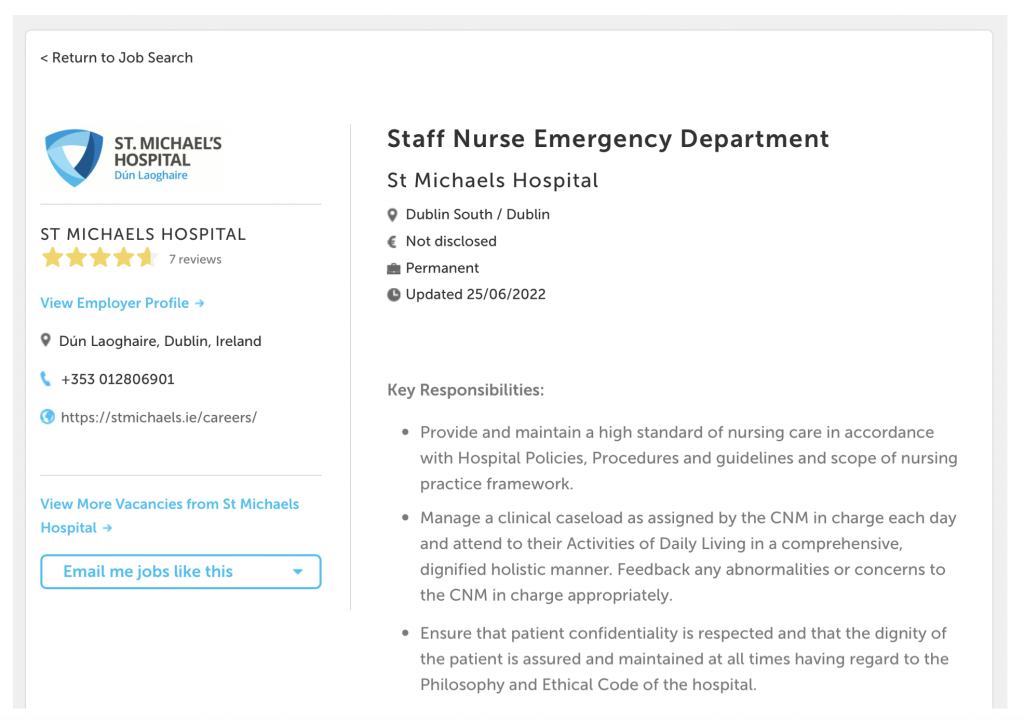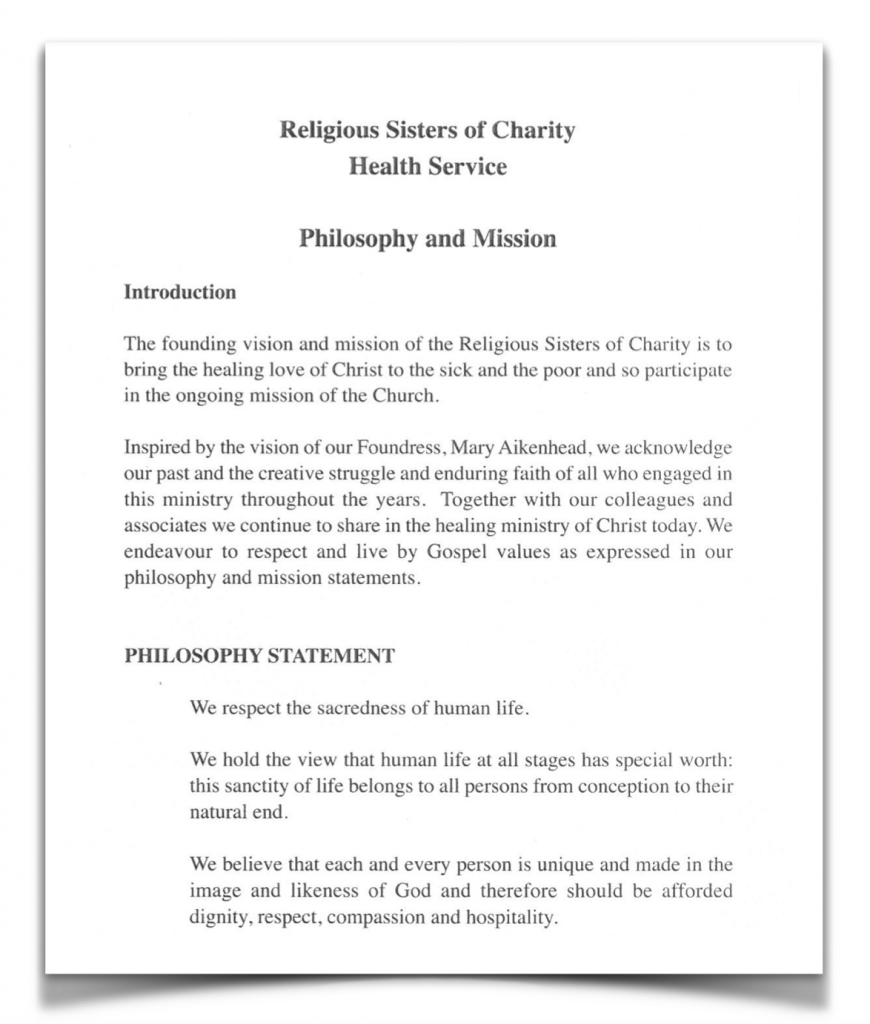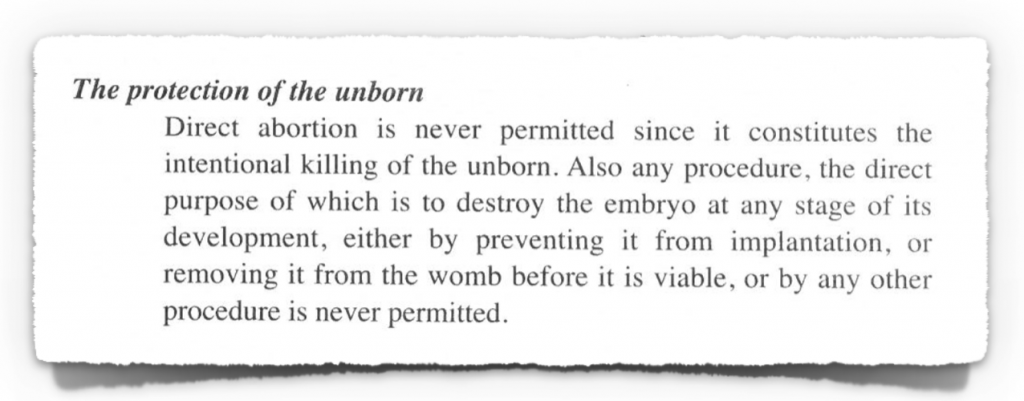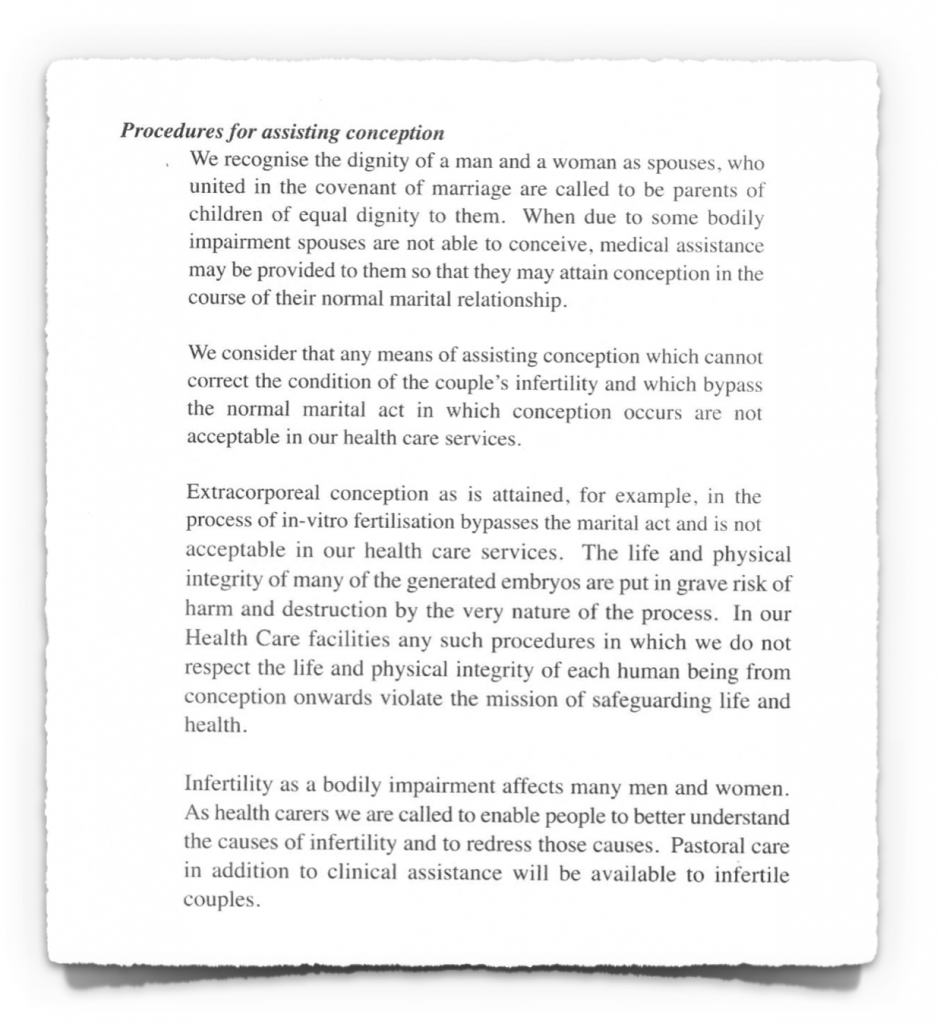On 23rd August 2022, I won an appeal through the Office of the Information Commissioner (OIC) after St Vincent’s Hospital Group refused my Freedom of Information (FoI) request for “The Religious Sisters of Charity Health Service Philosophy and Ethical Code”. I have now received a copy of that document. It is available in full at the bottom of this page, along with the decision of the OIC rejecting the arguments offered by the Religious Sisters of Charity.
Philosophy vs Framework
The covering email that the St Vincent’s Hospital Group sent me, made clear that the Religious Sisters of Charity Philosophy and Ethical Code has been replaced with their new ethical framework. This update applies not just in the context of the National Maternity Hospital, but is described by St Vincent’s Hospital Group as applying “throughout our hospitals”. A full copy of the St Vincent’s Hospital Group Ethical Framework is also available at the bottom of this page.
“Dear Mr Hamill,
Email from St Vincent’s Hospital Group
Please find enclosed Religious Sisters of Charity (RSC) Philosophy and Ethical Code as per recent decision from the Office of the Information Commissioner.
The RSC Philosophy and Ethical Code is no longer active and St Vincent’s Healthcare Group have our own ethical framework which is in operation throughout our hospitals.
Kind Regards, etc.”
I have no reason to suspect that this isn’t entirely true. However, job descriptions for roles that are currently being advertised by hospitals within the St Vincent’s Hospital Group, seem to suggest that some confusion remains. Below is an extract from the job description for a Staff Nurse in the Emergency Department at St Michael’s Hospital. This is a state-funded hospital within the St Vincents Hospital Group, and the job description was last updated on 25th June 2022.

This job description suggests that within the Emergency Department at St Michael’s Hospital at least, the Philosophy and Ethical Code still applies. There is no mention of the new ethical framework, which was apparently introduced in 2021.
Philosophy and Ethical Code
It appears that it may be worth considering whether staff are still being hired based on contracts that require adherence to the Religious Sisters of Charity Philosophy and Ethical Code. If not, it may still be worth considering what if any revisions to staff contracts and staff training have been associated with the described replacement of this code. Moreover, it may also be worthwhile to consider what exactly this document contains, since it still seems to be referred to within contemporary job descriptions.
The introduction to the Religious Sisters of Charity Philosophy and Ethical Code does not offer an auspicious start.

As an Irish citizen, I support the Irish health service through my taxes on exactly the same basis as everyone else in the country. I don’t think that whatever dignity and respect is afforded to me by our health service, should be based on the idea that I was made in the image of any god. That is an idea that belongs in the seminary, and not the ethical philosophy of a publicly funded hospital.
Given that this is how the Religious Sisters of Charity Philosophy and Ethical Code is introduced, there are no prizes for guessing what the document says about the termination of pregnancy.

In referring to preventing implantation, this policy describes a prohibition on the morning after pill. The dangers of such religiously-inspired prohibitions have been rehearsed in the Irish Courts for decades.
Crisis Pregnancy
Consider the Supreme Court case of Attorney General vs X as just one example. The X Case involved a 14 year-old girl who had become pregnant as a result of rape. Consider if another such appalling case arose tomorrow, and a different 14 year-old girl arrived at the St Michael’s Hospital Emergency Department having just been raped.
I have absolutely no doubt that the staff would offer all possible care and attention to a child in such awful circumstances, but would they be bound by the terms of the job description for an Emergency Department Staff Nurse that was last updated by St Michael’s on 25th June 2022? Specifically, would they be prohibited from offering the morning after pill, as described in the Religious Sisters of Charity Philosophy and Ethical Code, which is referred to in that job description?
To say the very least, these seem like questions that are worth having clear answers to, especially since those responsible for providing the answers are also responsible for our new National Maternity Hospital.
Religious Influence
The extent of the Roman Catholic influence within the Religious Sisters of Charity Philosophy and Ethical Code, is in many cases quite astounding. The extract below describes how patients struggling with fertility issues should be treated.

It is absolutely extraordinary that healthcare professionals could be asked to first consider whether patients are “united in the covenant of marriage”, before deciding what medical treatment options are appropriate. The highly qualified professionals applying for staff nurse positions in our public health service during 2022, should not have to worry about being admonished by religious orders with phrases like “the normal marital act”, as if they are children listening to a priest in a classroom from a century ago.
Assistance
I should note that I had help with the FoI process described above from Ken Foxe, who is a leading expert on the Freedom Of Information Act. Anyone interested in training on how to make Freedom Of Information requests; on how to access environmental information; or on how to manage internal reviews and appeals; should consider working with Ken. Moreover, Ken is also involved with the Right To Know organisation. I am a supporter of that organisation and I would encourage others to consider offering them some support too.